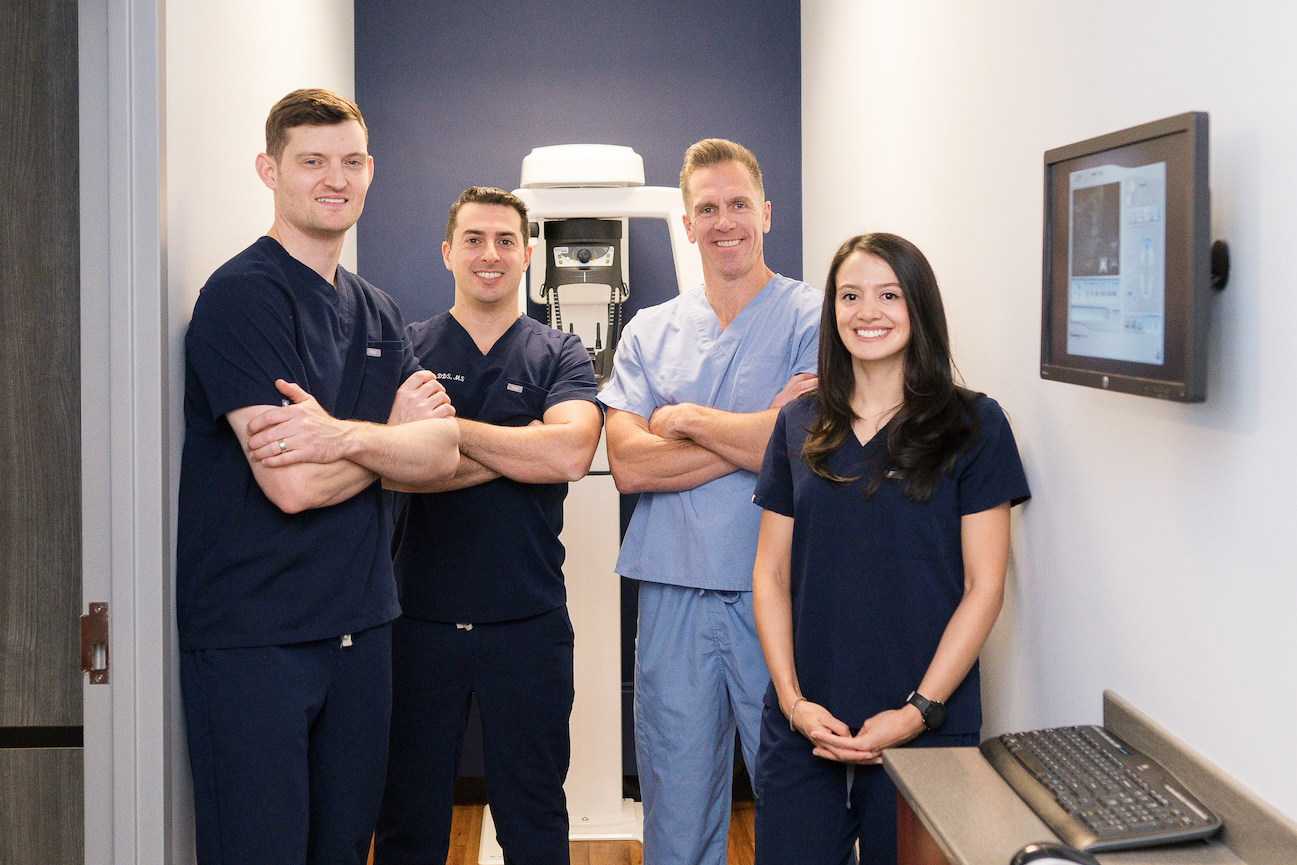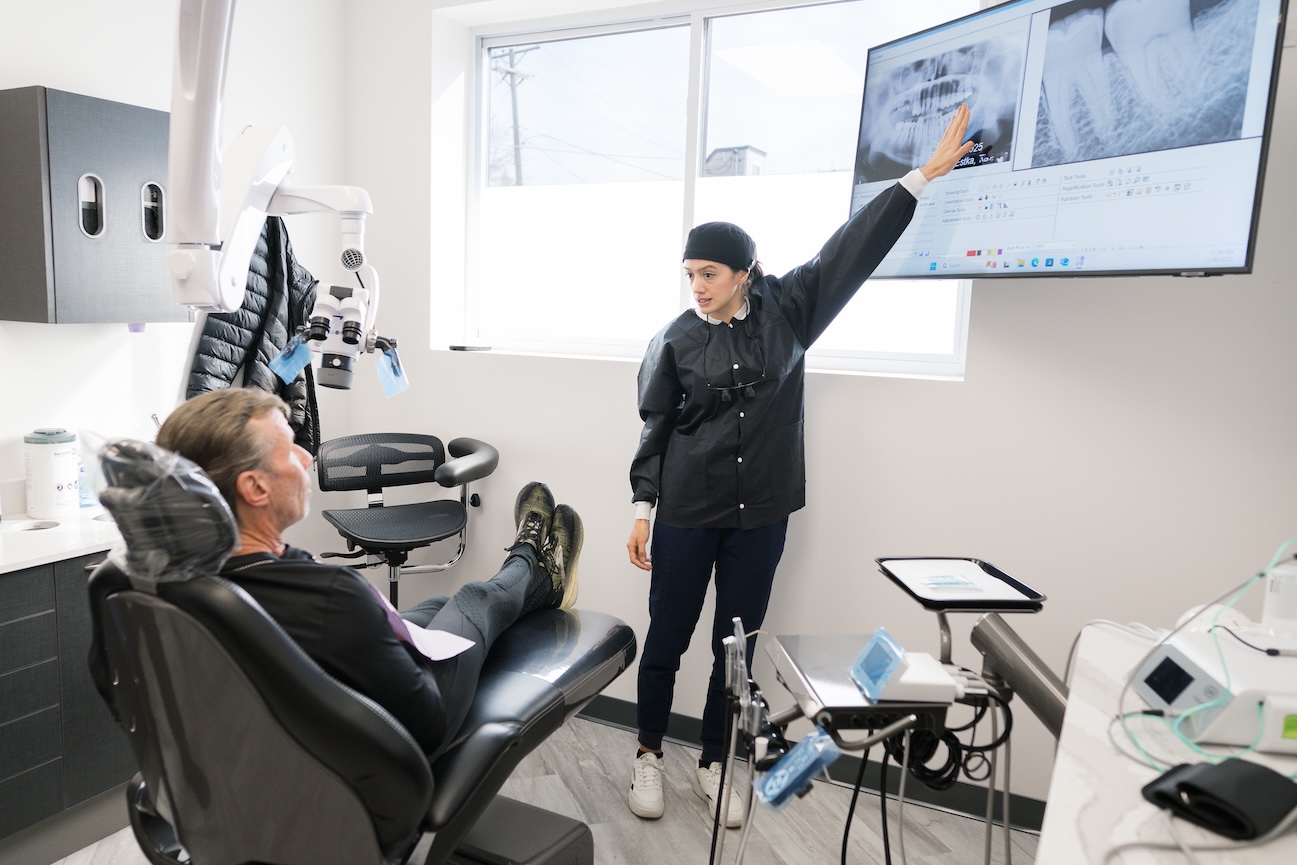Frenectomy Park Ridge & Mt Prospect
What Is a Frenectomy and When is it Needed?
At Northwest Dental Specialists in Mount Prospect, IL, we focus on preventing, diagnosing, and treating conditions affecting the supporting structures of the teeth, gums, and bone. Led by Dr. Paola Rojas, our office offers specialized procedures, such as frenectomy, to address issues related to the labial and lingual frenum, improving oral health and enhancing the quality of life for our patients.
What is a Frenectomy?
A frenectomy is a simple surgical procedure that removes or modifies a tight frenulum, a small band of tissue that connects parts of the mouth. This procedure is commonly used to treat conditions affecting the following:
- Labial frenum: The band of tissue connecting the upper lip or lower lip to the gums.
- Lingual frenum: The tissue under the tongue that connects it to the floor of the mouth.
When these tissues are too tight or restrictive, they can cause functional and cosmetic issues, including tongue tie (ankyloglossia), which limits tongue movement and can lead to speech difficulties or trouble breastfeeding in infants. A tight labial frenum may contribute to the spacing between the front teeth or gum recession.
Who Needs a Frenectomy?
Individuals of any age may require a frenectomy if they experience problems due to a short or tight frenulum. While it is commonly performed on infants with tongue-tie or lip-tie, adults can also benefit from this procedure.
Infants With a Tongue or Lip-Tie
Infants with tongue-tie have a short or tight lingual frenulum that restricts the tongue’s range of motion. This can make it difficult for them to latch onto the breast or bottle properly, leading to difficulties with breastfeeding and potential weight gain issues.
Individuals With Speech Difficulties
A restricted lingual frenulum can sometimes hinder tongue movement, leading to speech difficulties. This is more common in children but can also affect adults. The limited range of motion of the tongue can make it difficult to pronounce certain sounds, resulting in speech issues such as lisping or difficulty articulating words clearly.
Children or Adults with Oral Health Issues
A tight frenulum can contribute to various oral health problems for children and adults. For instance, a tight lingual frenulum can pull on the gums, increasing the risk of gum recession over time. Additionally, a tight labial frenum can cause a gap between the upper front teeth, making it challenging to maintain proper oral hygiene and potentially increasing the risk of cavities.
Orthodontic Treatment Patients
Orthodontic patients, particularly those undergoing treatment with braces, may require a frenectomy to address specific issues related to permanent teeth alignment. For example, a tight maxillary frenum can create a gap between the upper front permanent teeth and may even cause them to shift out of alignment after orthodontic treatment.
People Who Experience Discomfort or Pain
While often overlooked, a tight frenulum can cause noticeable discomfort or pain in some individuals. The constant tension caused by a tight frenulum, particularly a tight lingual frenulum, can lead to difficulty swallowing, pain when sticking out the tongue, or general discomfort during speaking and eating.
Persons with Difficulty Swallowing or Eating
Sometimes, a short or tight lingual frenulum can significantly impact a person’s ability to swallow or eat comfortably. The restricted tongue movement makes it difficult to move food around in the mouth effectively, leading to difficulties with chewing, swallowing, and even choking hazards.
Denture Wearers
Denture wearers, especially those with upper dentures, may experience tight maxillary labial frenum issues. The frenum can interfere with the denture’s fit and stability, leading to discomfort, slippage, and difficulty eating and speaking.
The Procedure
A frenectomy is a quick procedure performed at Northwest Dental Specialists, typically under local anesthesia, to ensure your comfort. Here’s what you can expect:
- Evaluation: Dr. Rojas will assess the labial or lingual frenum’s position and tightness to determine if a frenectomy is the best course of action.
- Surgical Removal or Adjustment: Using precision techniques, the piece of tissue is carefully removed or modified to release the restriction.
- Healing: The procedure is minimally invasive, and recovery is usually straightforward. Most patients return to normal activities within a day or two.
Choose Precision and Excellence
At Northwest Dental Specialists, Dr. Rojas brings advanced training and expertise in managing conditions affecting the gums and oral tissues. Whether you need relief from a tongue tie, to address a gap between your front teeth, or to improve oral health, our team ensures your comfort and delivers personalized care.
Contact us at (847) 398-0404 to schedule a consultation with Northwest Dental Specialists in Mount Prospect, IL, and take the first step toward improved oral function and comfort. With our expertise and patient-centered approach, we’ll help you achieve a healthier, more confident smile.

 MEET
MEET MEET
MEET MEET
MEET MEET
MEET MEET
MEET PATIENT FORMS
PATIENT FORMS PATIENT PORTAL
PATIENT PORTAL FINANCING AND INSURANCE
FINANCING AND INSURANCE YOUR FIRST VISIT
YOUR FIRST VISIT








